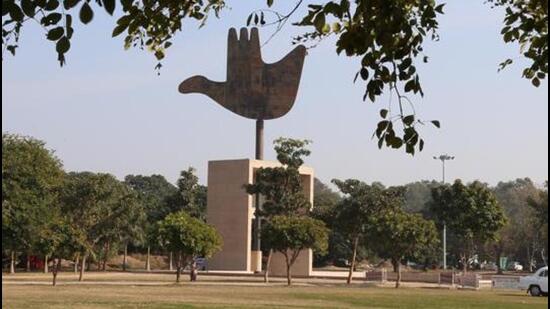HT Explainer: What the switch to central service rules in Chandigarh means
While earlier the 16,000-odd Chandigarh employees had service conditions similar to those in Punjab, now they have been brought on par with central employees
After repeatedly turning down the requests of a section of UT employees to implement the central services rules in Chandigarh, the Union government this week notified the Chandigarh Employees (Conditions of Service) Rules, 2022, replacing Punjab service rules from April 1. Hindustan Times decodes what the shift means for employees and the controversy around it:

What the shift means
While earlier the 16,000-odd UT employees had service conditions similar to those in Punjab, now they have been brought on par with central employees. Over the years, though, some central regulations had already been adopted. Most UT employee unions, particularly teachers and nurses, have welcomed the move, but some have argued against it. The shift in rules does not cover the around 20,000 outsourced and contractual employees, eliciting criticism from them.
What changes here on
The retirement age will increase from 58 to 60 years. Child care leave for women employees will increase from one to two years, school principals will get 30 earned leaves instead of eight and vice-principal’s post will be created in schools. Children education allowance of ₹2,250 per month will be provided for up to two children, medical expenses will be reimbursed on submission of bills instead of a fixed per month amount, gratuity may increase by 25% whenever dearness allowance increases by 50% and conveyance allowance will be increased as per the pay grade. Pay scales will be upgraded after 10, 20 and 30 years of service, and new recruits on probation will get full pay.
The age of recruitment changes from 18-37 years to 18-27 years, which some unions have termed as reduction in job opportunities. Notably, the recruitment age was increased only recently after the intervention of city MP Kirron Kher.
Will pay scales be affected
While in some categories, like teachers and nurses, the central pay scales are better, in most other departments, like police, salaries are better under the Punjab service rules.
But the UT administrator has the power to decide the pay scales under the new notification, giving employee unions a ray of hope that the higher pay scales will be maintained.
How about deputations
The change in service rules will not impact deputations from other states. Officers and employees on deputation get benefits as per their parent cadre. There will be no change in number of deputations either, senior UT officials maintain, with one officer stating, “These are unrelated issues.”
Why the political controversy
The announcement of the move raised apprehensions among Punjab’s political circles that the state’s claim on Chandigarh will be diluted. In Chandigarh, all political parties, except the BJP, have maintained reticence over the issue.
The change in rules also comes close on the heels of Punjab’s objections to the alleged “diminishment” of Punjab-cadre officers in the UT administration.
Punjab had taken serious exception to the appointment of an AGMUT-cadre officer to the post of the CITCO managing director, which it considers reserved for a Punjab-cadre officer. While it maintains that UT is to be manned by Punjab and Haryana officers in the 60:40 ratio, UT officials argue that there is no statutory stipulation on this.
Local BJP leaders, including former MP Satya Pal Jain, have contended that change in service rules will not impact status of Chandigarh vis-à-vis Punjab. The BJP-led Haryana government has stayed away from both controversies. Upping the ante, the newly formed AAP-led Punjab government has called a special one-day session of the Punjab assembly on Friday to discuss the issue.
Notably, the Punjab governor also holds the post of UT administrator since 1984. In 2016, Centre’s move to appoint retired bureaucrat KJ Alphons as the administrator, splitting the post from Punjab governor, was put on hold after objection from the then SAD government in Punjab.




